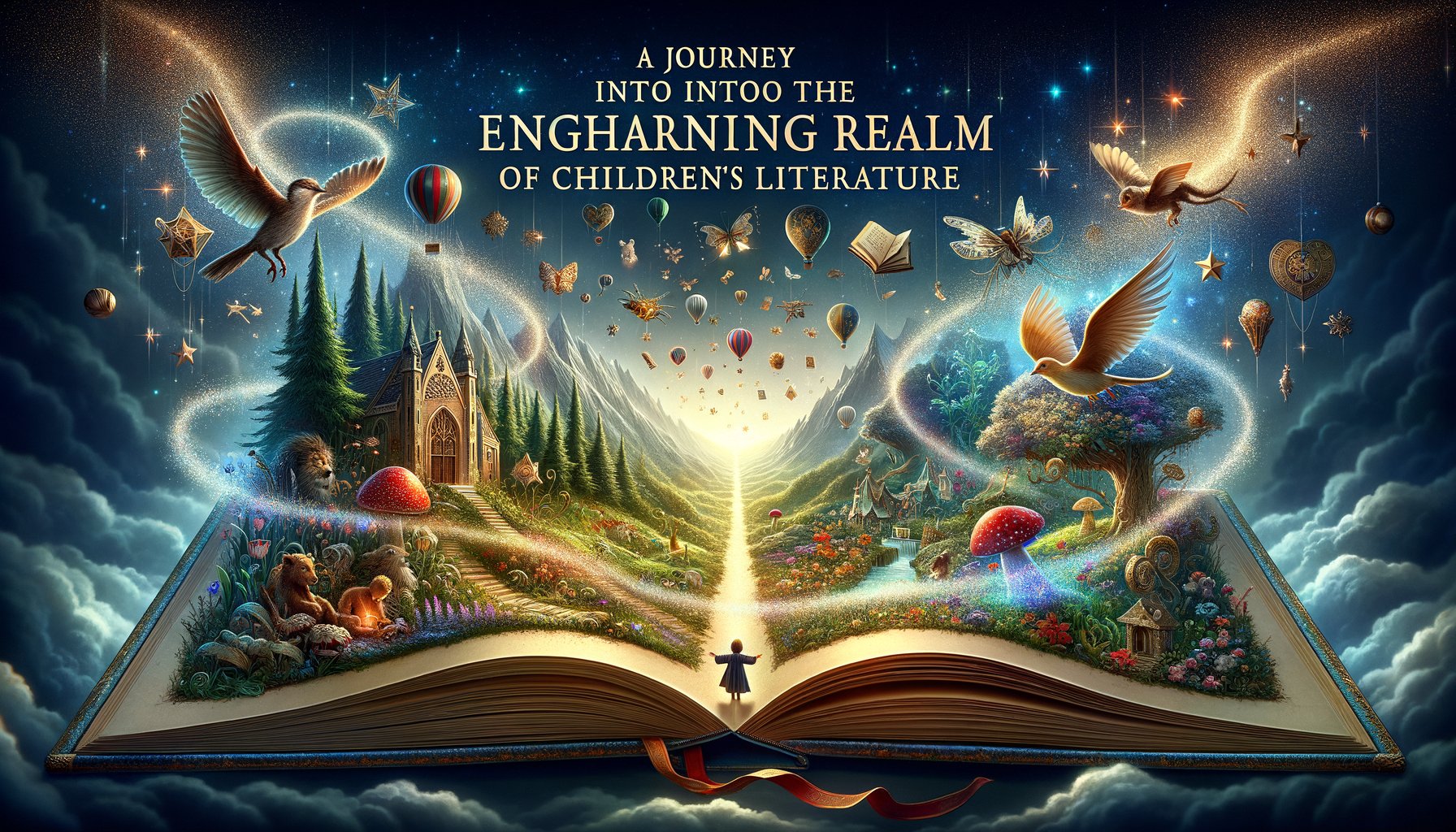Physical Address
304 North Cardinal St.
Dorchester Center, MA 02124
Physical Address
304 North Cardinal St.
Dorchester Center, MA 02124

Once upon a time, in a world brimming with imagination and wonder, where talking animals, mythical creatures, and brave young heroes reside, we find ourselves immersed in the captivating universe of children’s literature. This magical realm has been an indispensable part of childhood for centuries, offering countless tales that have shaped generations and continue to do so.
Children’s literature is not merely a collection of simplistic stories designed to entertain young minds. It is an intricate tapestry woven with threads of creativity, wisdom, life lessons, hopes, dreams and endless possibilities. It serves as a mirror reflecting reality through the lens of fantasy while simultaneously acting as a window into realms beyond our wildest imaginations.
The roots of children’s literature can be traced back to oral storytelling traditions. From the ancient fables passed down through generations to the fairytales penned by Hans Christian Andersen and Brothers Grimm – each story carries traces of its origin culture whilst transcending geographical boundaries to touch hearts worldwide.
‘Alice’s Adventures in Wonderland’, written by Lewis Carroll in 1865 is one such timeless classic that has left an indelible mark on children’s literature. The tale follows Alice as she tumbles down a rabbit hole into a fantastical world filled with whimsical characters – from the Mad Hatter to the Cheshire Cat. The book beautifully encapsulates the essence of childlike curiosity and imagination whilst subtly addressing complex themes like identity crisis and logical reasoning.

Another cornerstone in this genre is ‘The Little Prince’ by Antoine de Saint-Exupéry. This philosophical novella delves deep into themes like love, friendship and loss wrapped in a simple, yet profound narrative. The Little Prince’s journey across various planets serves as an allegory for Saint-Exupéry’s own experiences and reflections on human nature and life itself.
Children’s literature is also known for its rich diversity. From Dr Seuss’ playful rhymes that promote creativity and individuality to the enchanting wizarding world of J.K. Rowling’s ‘Harry Potter’ series that explores friendship, bravery, and the struggle between good and evil. These books not only provide entertainment but also instil important values and lessons in young readers.

The genre has evolved significantly over time, with contemporary authors pushing boundaries to address complex issues such as mental health, race, gender identity, and environmental conservation in ways children can understand. For instance, ‘The Boy at the Back of the Class’ by Onjali Q Raúf tells a touching story about a refugee boy from Syria through the eyes of his classmates – fostering empathy and understanding towards refugees.
Children’s literature is also a powerful tool for nurturing literacy skills. Picture books like Eric Carle’s ‘The Very Hungry Caterpillar’ use vibrant illustrations to engage young readers whilst helping them learn about numbers, days of the week, food items, and metamorphosis. Meanwhile, chapter books like Roald Dahl’s ‘Charlie and the Chocolate Factory’ enhance vocabulary while stimulating imagination.

Perhaps one of the most beautiful aspects of children’s literature is its ability to foster connections – between children and parents during bedtime storytelling; among kids sharing their favourite books; and between readers and characters who, despite living in different worlds, share similar experiences and emotions. These connections echo long after the last page is turned, shaping our worldview and leaving a lasting impact.
So, here’s to children’s literature – a world that enchants us with its magic, teaches us with its wisdom, comforts us with its warmth, challenges us with its depth, and inspires us with its boundless imagination. It is a world that reminds us of the child within – forever curious, forever dreaming, forever enchanted.